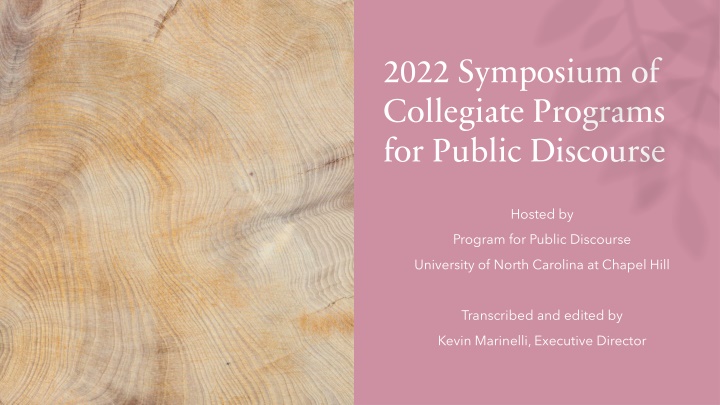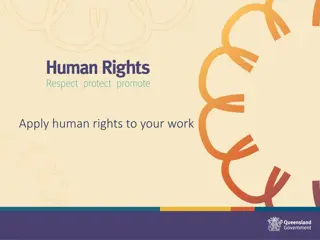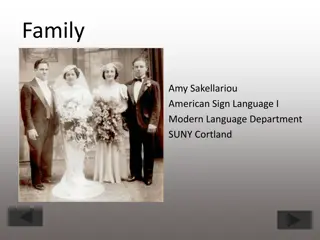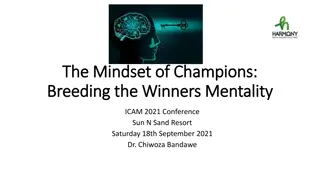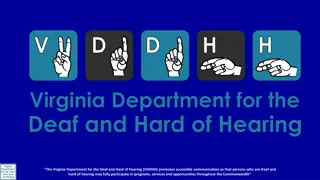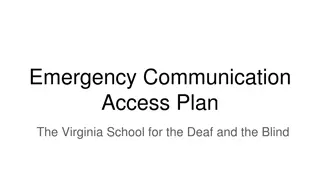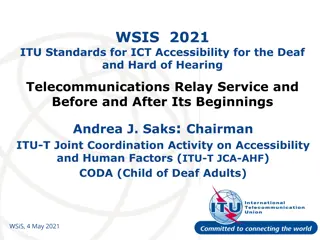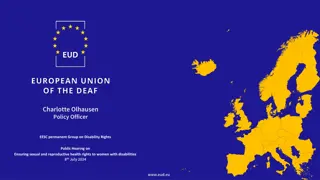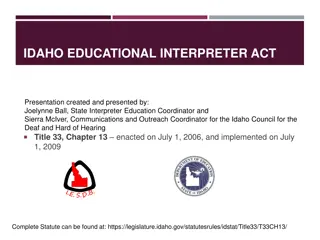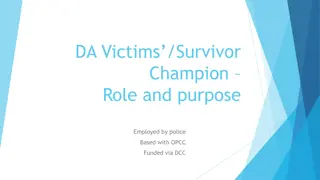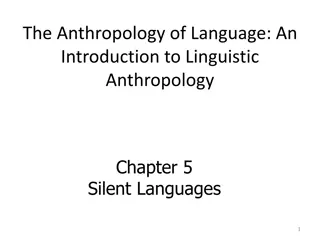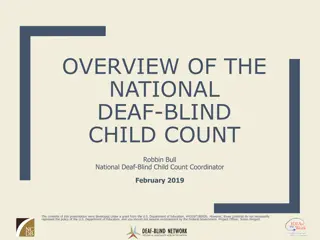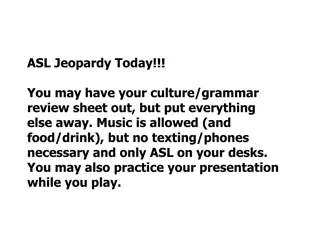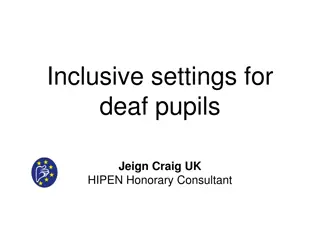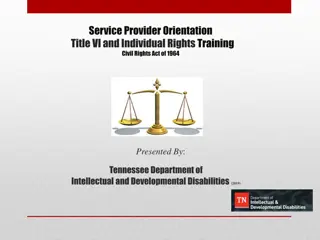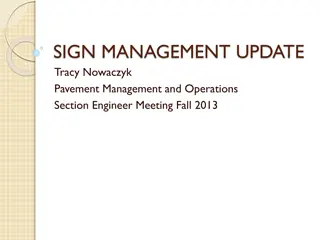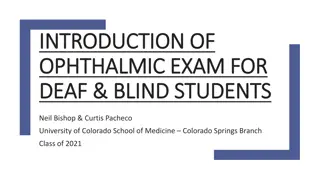Celebrating 151 Years of George Veditz: A Champion of Deaf Rights & Sign Language Advocacy
George William Veditz, the 7th President of the National Association of the Deaf, was a pioneering advocate for Deaf rights and sign language. Born in 1861, he dedicated his life to preserving and promoting American Sign Language. Veditz's legacy lives on through his passionate advocacy, educational contributions, and innovation in using motion pictures to showcase the beauty of sign language.
Download Presentation

Please find below an Image/Link to download the presentation.
The content on the website is provided AS IS for your information and personal use only. It may not be sold, licensed, or shared on other websites without obtaining consent from the author.If you encounter any issues during the download, it is possible that the publisher has removed the file from their server.
You are allowed to download the files provided on this website for personal or commercial use, subject to the condition that they are used lawfully. All files are the property of their respective owners.
The content on the website is provided AS IS for your information and personal use only. It may not be sold, licensed, or shared on other websites without obtaining consent from the author.
E N D
Presentation Transcript
2022 Symposium of Collegiate Programs for Public Discourse Hosted by Program for Public Discourse University of North Carolina at Chapel Hill Transcribed and edited by Kevin Marinelli, Executive Director
I. Facilitating Public Discourse in a Polarized Climate II. Rethinking Missions and Desired Outcomes Symposium Panels III. Celebrating Successes and Strategizing Struggles IV. Student Perspectives on Public Discourse
II. Rethinking Missions and Desired Outcomes Panelists: Pamela Conners, Gustavus Adolphus College Katherine Knobloch, Colorado State University Carolyn Long, Washington State University at Vancouver Deondra Rose, Duke University
Sustaining a Program Pamela Conners Public Deliberation and Dialogue Gustavus Adolphus College
A sustainable program prioritizes values Gustavus Adolphus values student learning and community engagement. Student learning comes first. Helping communities navigate issues comes second. Deliberation takes the form of praxis.
Students are hungry for practice! Deliberation as praxis Student facilitators enter classes each semester utilizing the National Issues Forum model. The goal is, first, to empower students and, second, to empower communities.
Departing questions How do we advance a mission grounded in student learning and community that justifies institutional resources? How can our respective centers increase opportunities for students and community members to talk across different perspectives?
Key takeaways Student learning remains the center of our mission. Public deliberation is best taught in the form of praxis. Public deliberation can and should be incorporated into the curriculum.
Sustaining a Successful Center Katherine Knobloch Center for Public Deliberation Colorado State University
Key functions of program 1 2 3 Host impartial public conversations across difference Offer facilitation training to students and community Enhance local democracy
Evolution of program Increased focus on inclusion and equity Expanded focus on civic skills Systematized funding and functions
Be intentional about project selection (don t step on activists toes). Development opportunities for interest group engagement. Focus on inclusion and equity Practice targeted stakeholder engagement and recruitment. Be attentive to barriers of inclusion (compensate participants; provide childcare, etc.).
Hired managing director. Moved to a business plan: Narrowed the scope of our work Created contracts Made project bids Administrative innovations Shifted toward repeat processes and ongoing projects rather than one-off conversations.
Process design Public relations Distributed labor across student teams Research and data Teaching Public achievement
Partner with groups predisposed to program mission Suggestions for sustainability Apply for grant funding Address topical issues close to home, e.g., affordable housing, education, race, opioids Take notes and make reports for each forum
Choose programming selectively. Strategize and foster community connections. Key takeaways Go back to the drawing board when necessary. Utilize a practical business model.
Sustaining a Program Carolyn Long Initiative for Public Deliberation Washington State University, Vancouver
Make university a steward of place. Feature semester long class on theory and practice of democracy and facilitation. Path toward sustainability Allow students to incorporate their work into their job instead of designating it merely as extra-curricular opportunity.
Partner with groups predisposed to your mission. Strategies for sustainability Apply for grant funding. Offer programming close to home, .e.g., affordable housing, education, race, opioids, etc. Reach out to the underrepresented.
Key takeaways 1 2 3 Incorporate student work into the curriculum. Make programming close to home. Partner strategically; avoid unnecessary uphill battles.
Utilizing Discourse for Democracy Deondra Rose Polis Center for Politics Duke University
The Public Policy course traditionally incorporates civil discourse. Embracing an evolving student culture Students now complain civil discourse is played out Research suggests many students refrain from sharing their authentic political identities in class. We recognized need to recreate higher education for the 21stcentury.
Established theme: Discourse for Democracy Strived toward a more nuanced treatment of discourse Strategies for revisioning civil discourse Invited panelists articulating different viewpoints Recruited students who have not been active with program and addressed their concerns Utilized outside resources, .e.g., Braver Angels
Civil discourse demands nuanced treatment. Key takeaways Embracing student concerns can foster critical change. Resources are available to promote our missions.
Panel summary Student learning remains at the core of our work. A pragmatic approach can accommodate limited resources. Think practically and creatively about your available resources. A sustainable center must be willing to evolve. Listen to your students and to your community.
